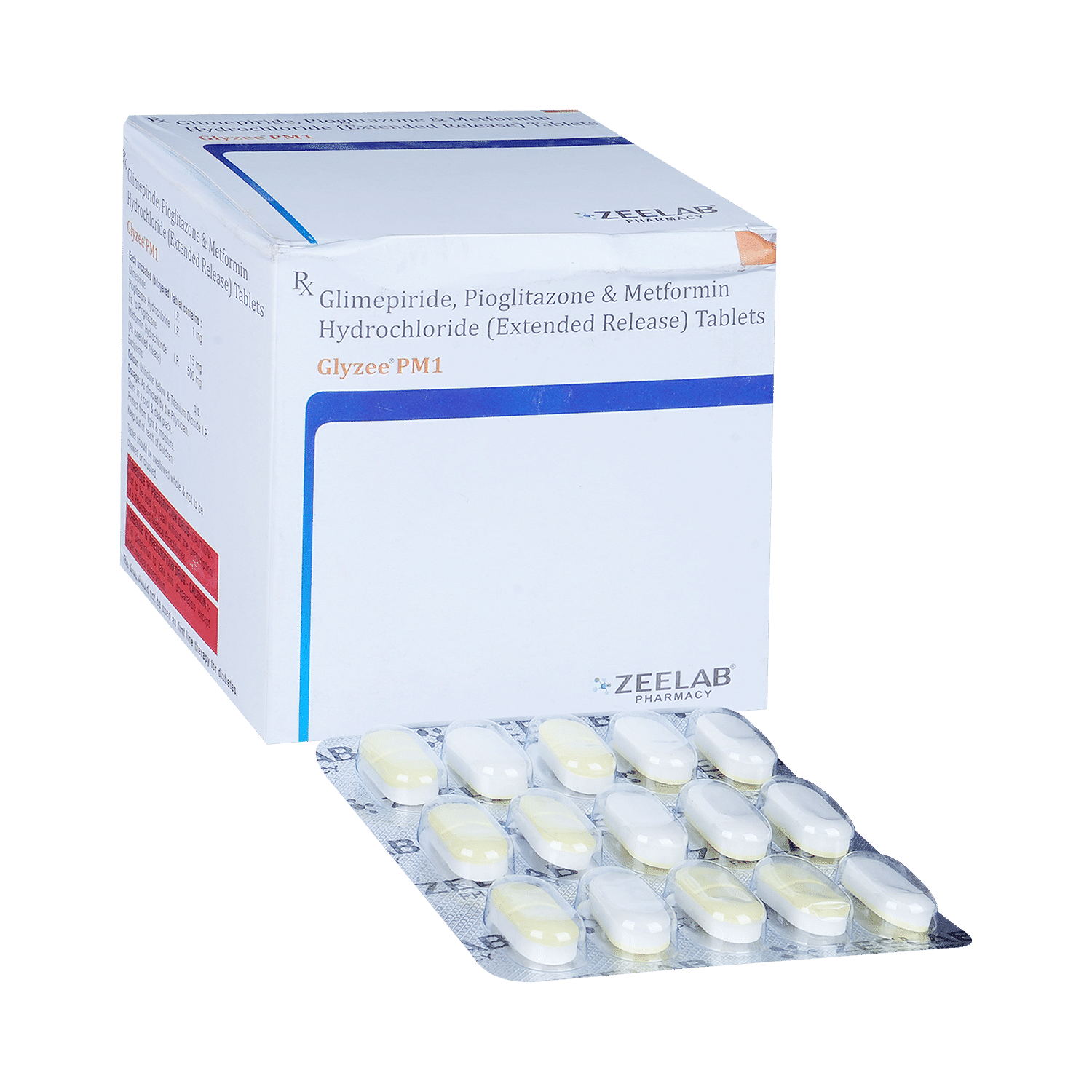
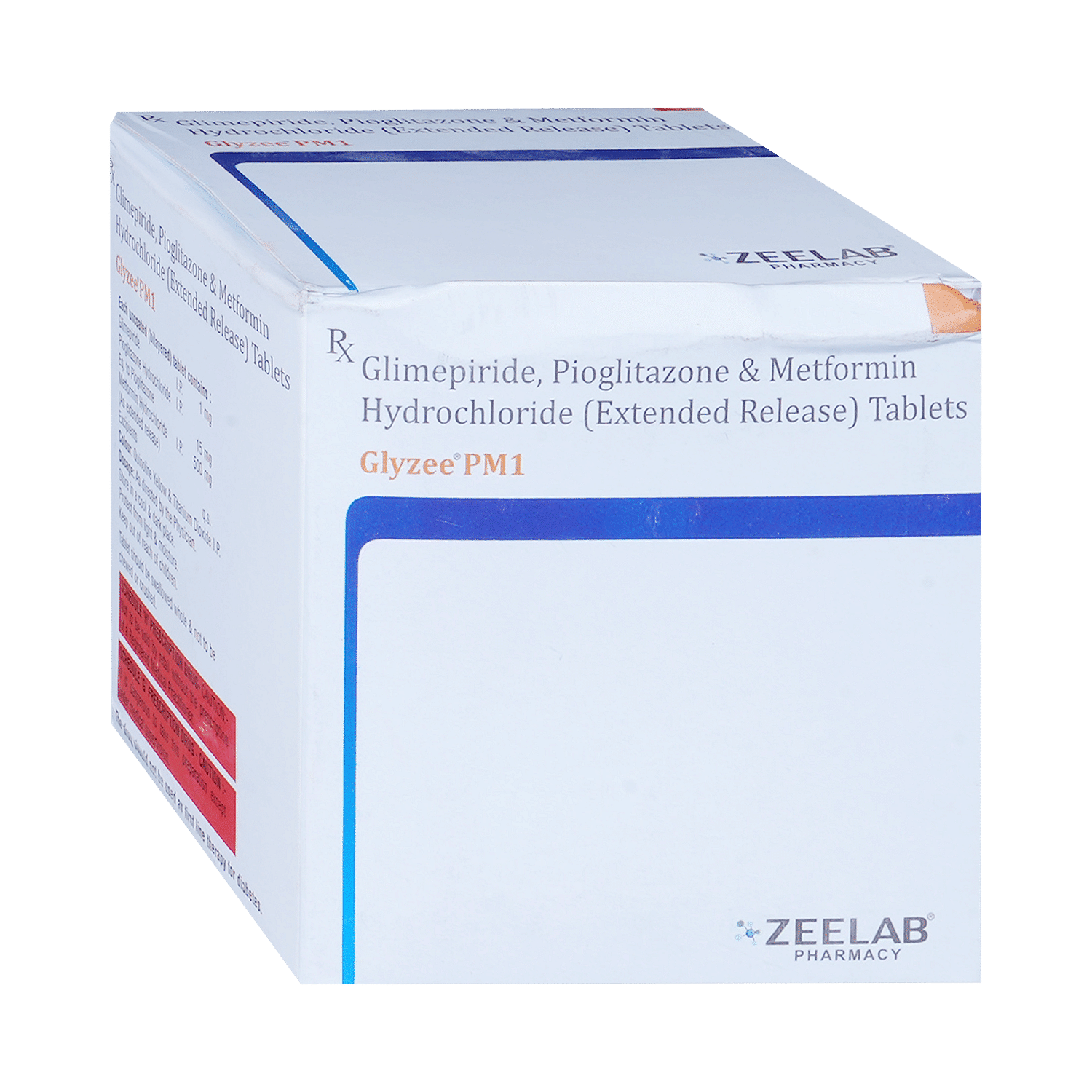
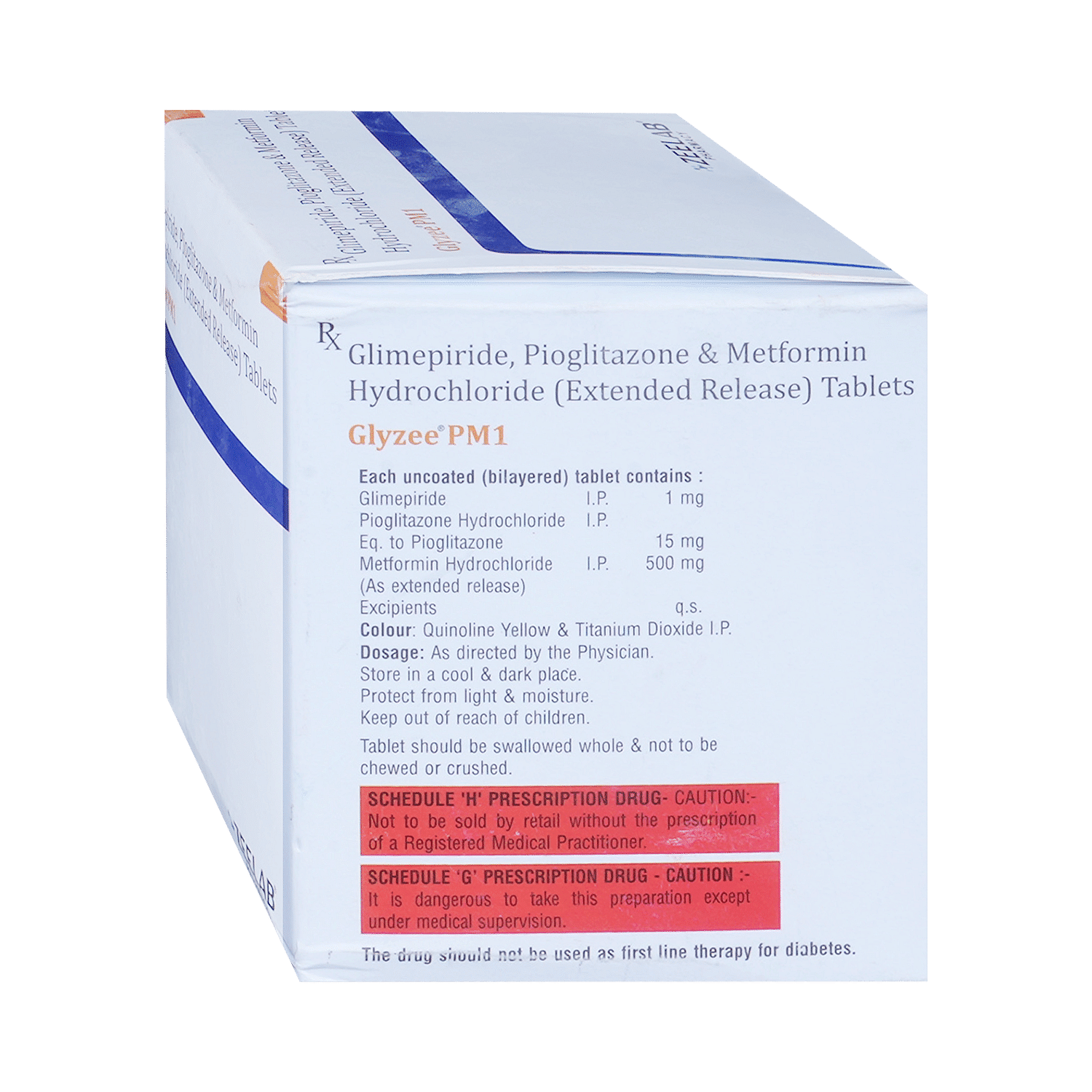
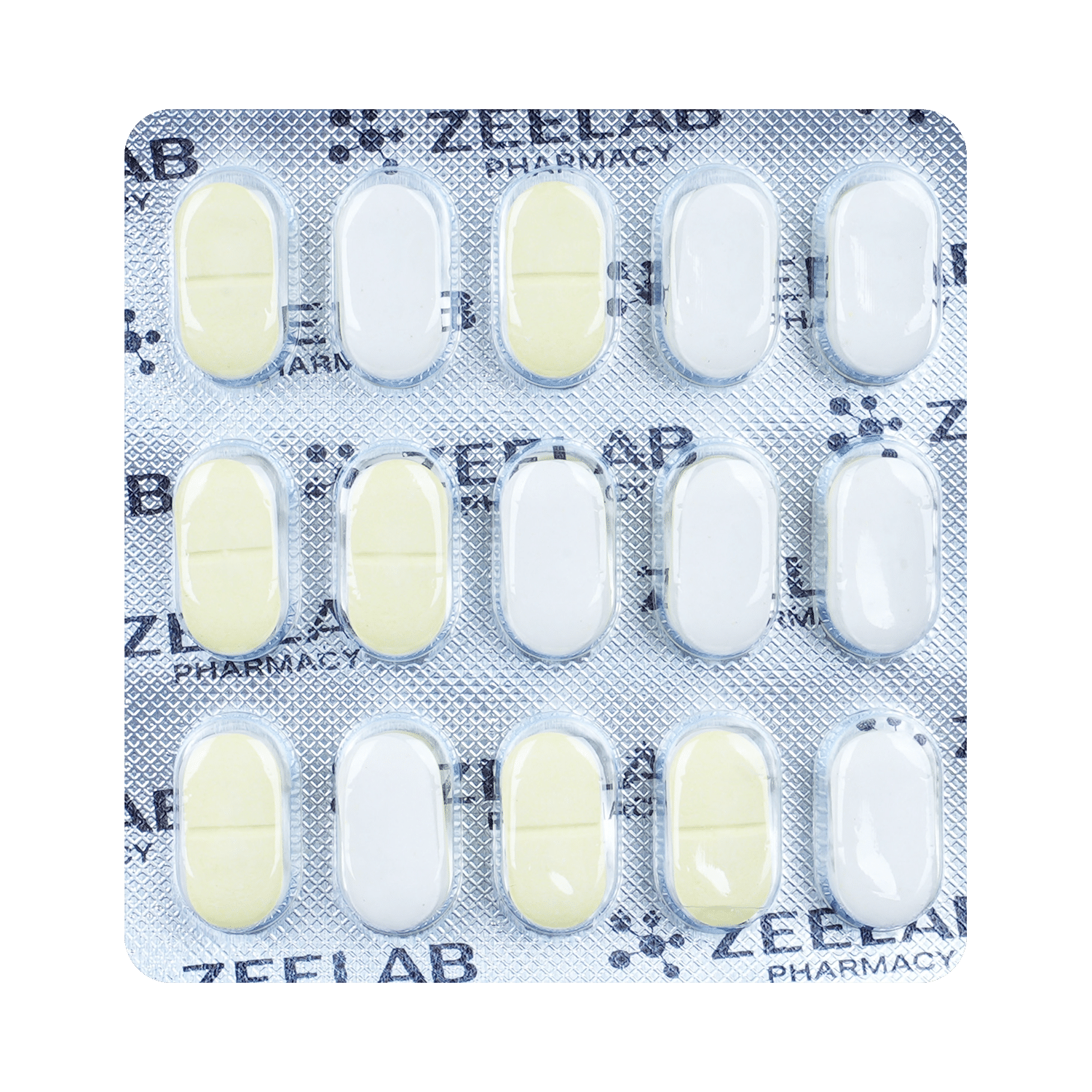

Glyzee PM1
Manufacturer
Zeelab Pharmacy Pvt Ltd
Salt Composition
Glimepiride (1mg) + Metformin (500mg) + Pioglitazone (5mg)
Key Information
Short Description
Glyzee PM1 is a combination medicine that helps control blood sugar levels in adults with type 2 diabetes mellitus, used together with diet and exercise.
Dosage Form
Tablet ER
Introduction
Glyzee PM1 is a combination medicine that helps control blood sugar levels. This medicine is used together with diet and exercise to improve blood sugar control in adults with type 2 diabetes mellitus. It helps in proper utilisation of insulin, thereby lowering the blood sugar levels.
Directions for Use
Take this medicine in the dose and duration as advised by your doctor. Swallow it as a whole. Do not chew, crush or break it. Glyzee PM1 is to be taken with food.
Safety Information
Side Effects
No common side effects listed.
Alcohol Warning
It is unsafe to consume alcohol with Glyzee PM1.
Breastfeeding Warning
Glyzee PM1 is probably unsafe to use during breastfeeding. Limited human data suggests that the drug may pass into the breastmilk and harm the baby.
Pregnancy Warning
Glyzee PM1 may be unsafe to use during pregnancy. Although there are limited studies in humans, animal studies have shown harmful effects on the developing baby. Your doctor will weigh the benefits and any potential risks before prescribing it to you. Please consult your doctor.
How it works
Glyzee PM1 is a combination of three antidiabetic medicines: Glimepiride, Metformin and Pioglitazone. They work by different mechanisms to provide better control of blood sugar when single or dual therapy is not effective. Glimepiride is a sulfonylurea which works by increasing the amount of insulin released by the pancreas in order to lower the blood glucose. Metformin is a biguanide. It works by lowering glucose production in the liver, delaying glucose absorption from intestines and increasing the body's sensitivity to insulin. Pioglitazone is a thiazolidinedione which further increases insulin sensitivity.
Quick Tips
Take it with food to lower your chance of having an upset stomach. It may cause hypoglycemia (low blood sugar level) when used with other antidiabetic medicines, alcohol or if you delay or miss a meal. Always carry some sugary food or fruit juice with you in case you experience hypoglycemic symptoms such as cold sweats, cool pale skin, tremor, and anxiety. Your doctor may check your liver function regularly. Inform your doctor if you develop symptoms such as abdominal pain, loss of appetite, or yellowing of the eyes or skin (jaundice).
Related Medicines

Gemer P1 Tablet

Yogamet-GMP 1 Tablet ER
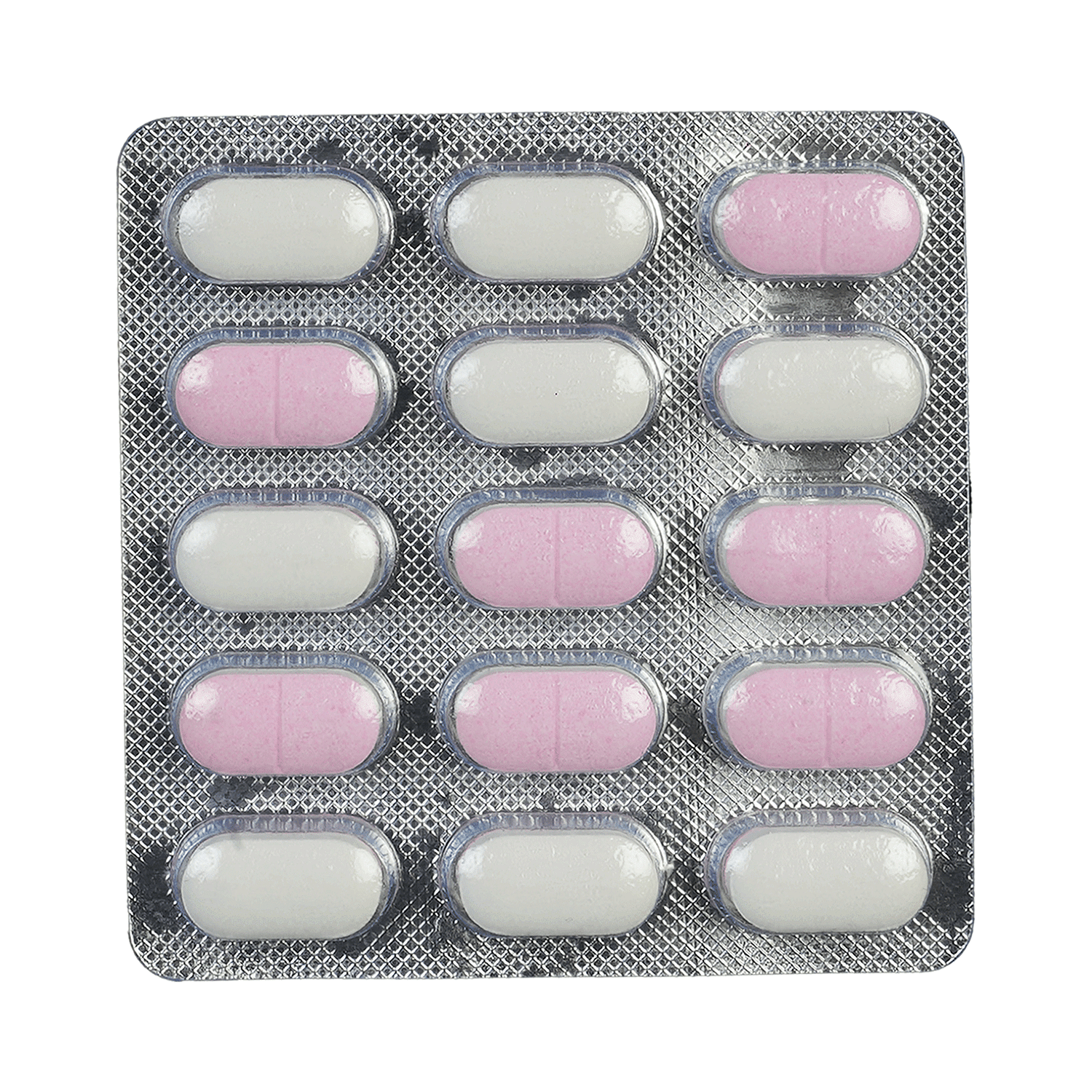
Tribet 1 Tablet

Triobimet 1mg/500mg/15mg Tablet ER
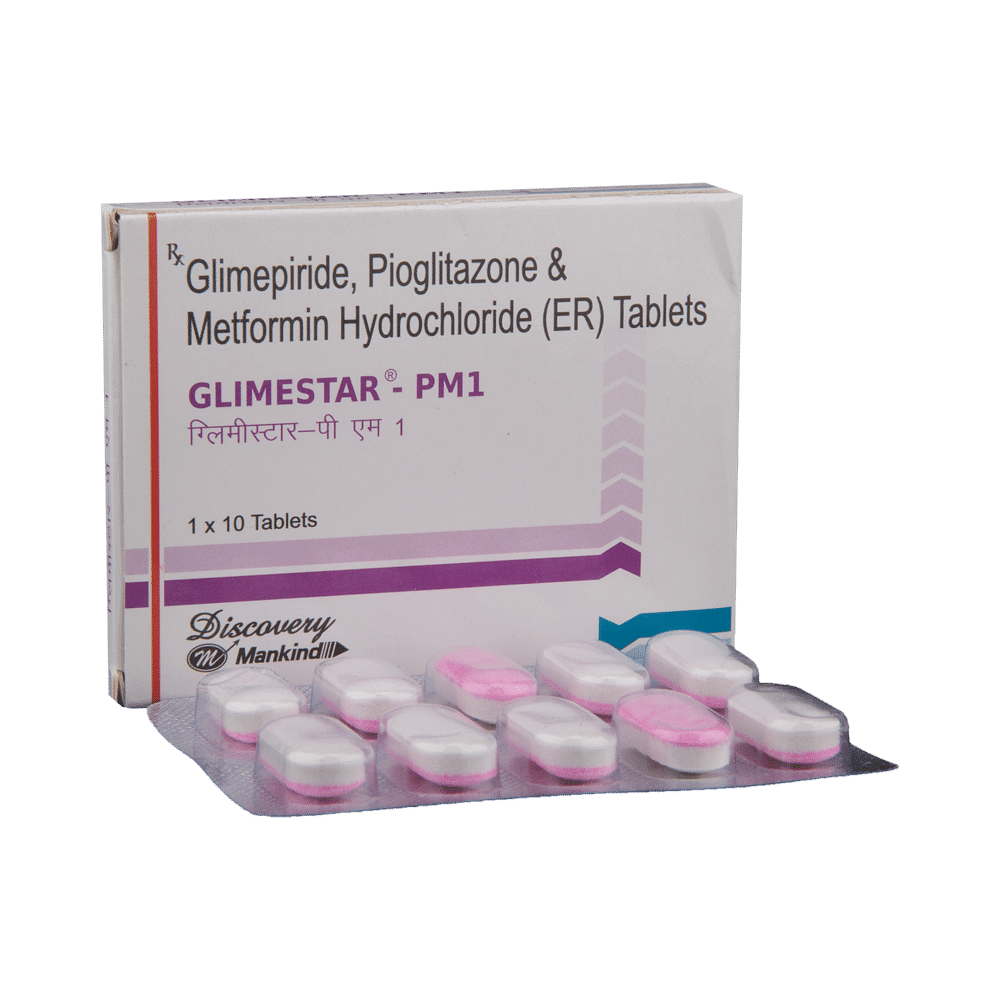
Glimestar-PM1 Tablet
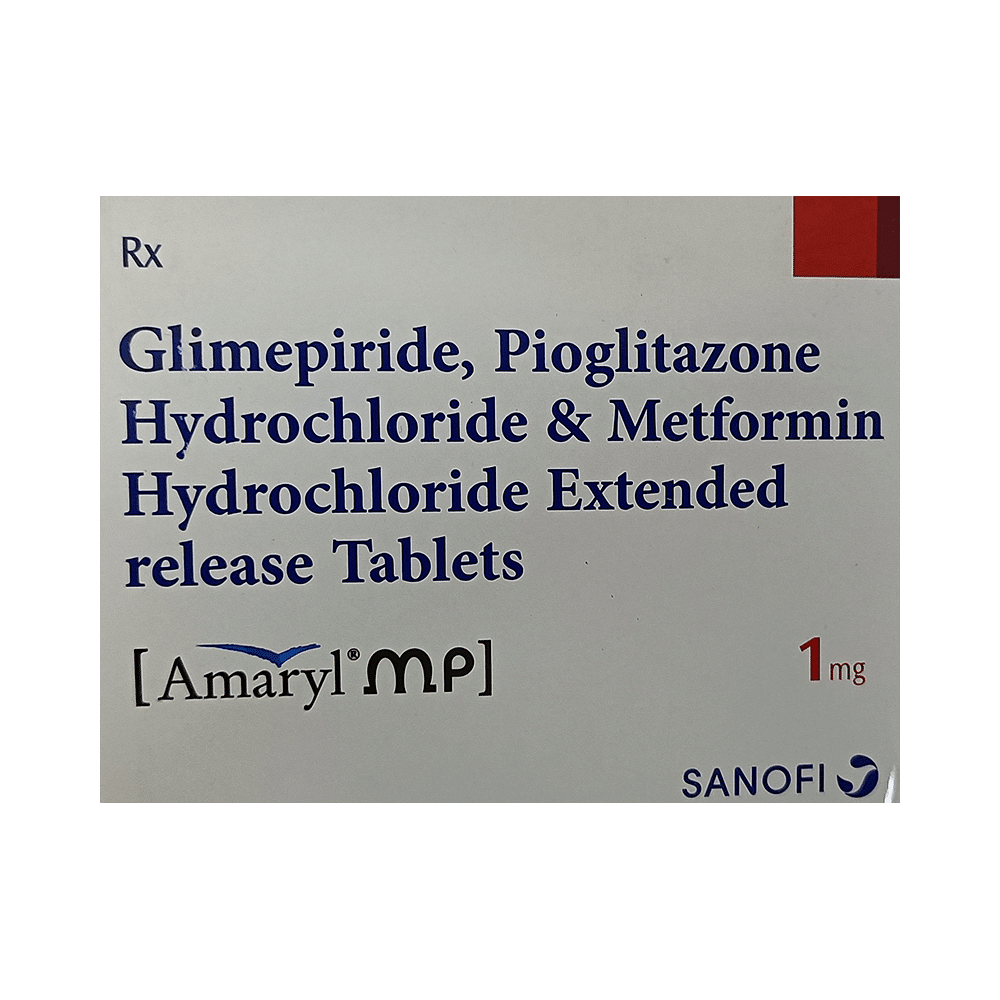
Amaryl MP 1mg Tablet ER
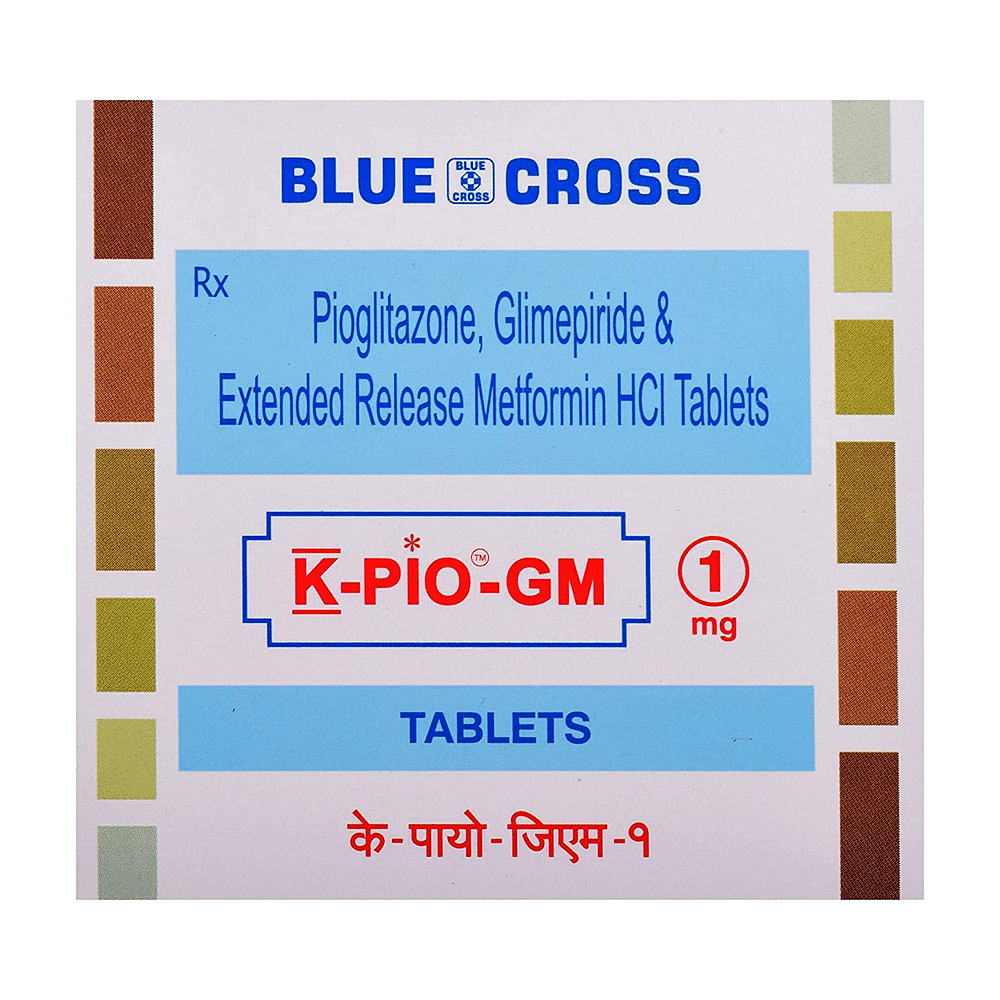
K-Pio-Gm 1mg Tablet ER

Prichek-GMP 1 Tablet ER

Amarin PM1 Tablet ER

Riomet Trio 1 Tablet ER
Frequently asked questions
Can I drink alcohol while taking Glyzee PM1?
No, alcohol should not be consumed while using Glyzee PM1. Combining alcohol with this medication may lower blood sugar levels (hypoglycemia) and increase the risk of lactic acidosis.
What should I inform the doctor before taking Glyzee PM1?
Inform your doctor if you have congestive heart failure, kidney problems, liver problems, or swelling of the back of the eye. Tell your doctor if you are pregnant, breastfeeding, or a premenopausal woman. Also, disclose any prescription and non-prescription medications, vitamins, or herbal supplements you are taking.
Can the use of Glyzee PM1 lead to vitamin B12 deficiency?
Yes, long-term use of Glyzee PM1 can cause vitamin B12 deficiency. It inhibits the absorption of Vitamin B12 in the stomach. This may lead to nutritional deficiencies.
Can the use of Glyzee PM1 cause hypoglycemia?
Yes, Glyzee PM1 can cause hypoglycemia (low blood sugar). Symptoms include nausea, headache, irritability, hunger, sweating, dizziness, fast heart rate, and feeling anxious or shaky. It's more likely to occur if you miss meals, drink alcohol, exercise excessively, or take other antidiabetic medications with it.
What are the instructions for the storage and disposal of Glyzee PM1?
Store Glyzee PM1 in its original container tightly closed. Follow the storage instructions on the label or package. Dispose of unused medication safely, ensuring it is not accessible to pets, children, or others.


